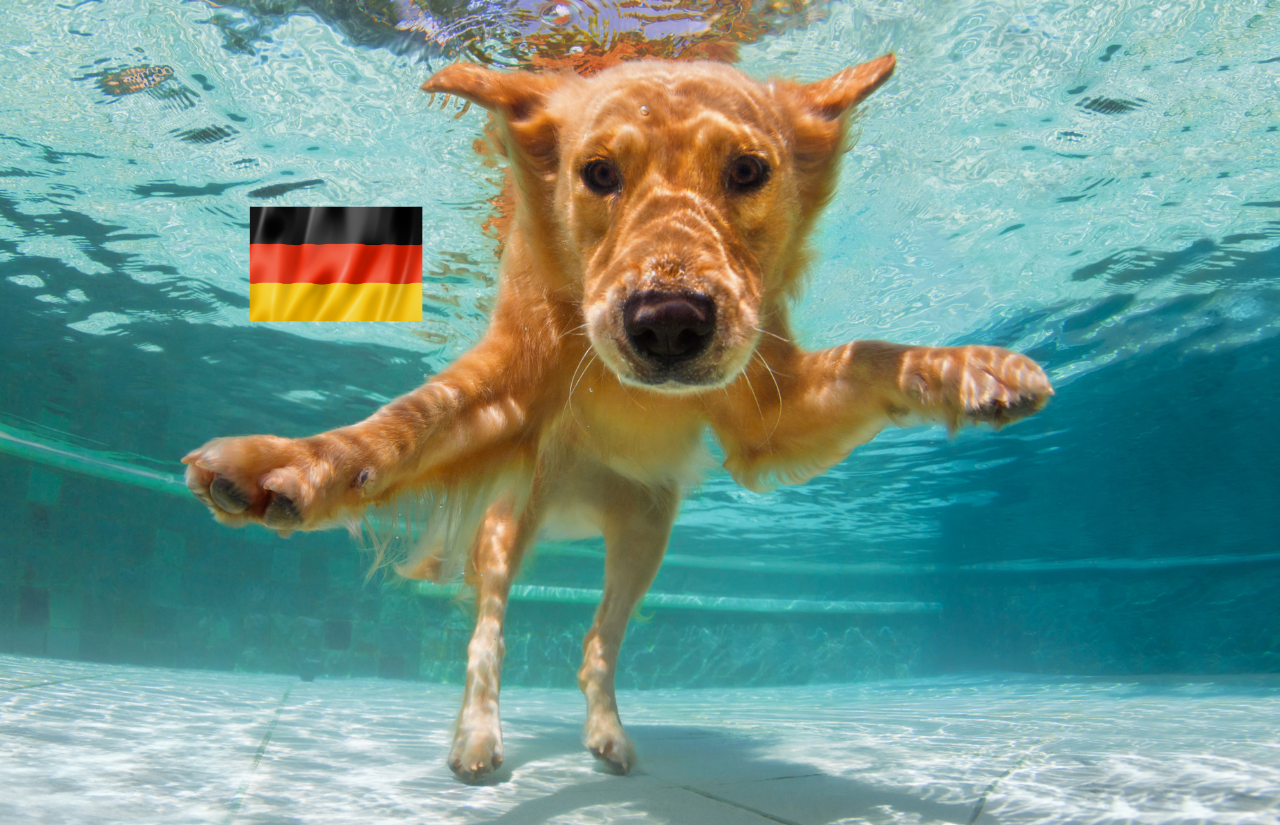Germany, with its renowned culture and history, has always harbored a unique connection with its canine companions. The bond is so deep that certain breeds, irrespective of their origin, have particularly found favor among the German populace. This article unveils the top 10 breeds that have warmed their way into the hearts of many German families.
Table of Contents
1. Labrador Retriever
2. German Shepherd
3. Golden Retriever
4. French Bulldog
5. Dachshund
6. Poodle
7. Beagle
8. Chihuahua
9. Boxer
10. Border Collie
Selecting the Right Breed
1. Labrador Retriever
The Labrador Retriever is often hailed as the quintessential family dog, a title it rightly deserves. With its origin from the cold waters of Newfoundland, Canada, the Lab was initially a fisherman’s helper, fetching ropes and hauling nets. This water-loving trait is evident even today, with many Labs adoring a splash in pools and ponds.
In Germany, the Labrador Retriever’s blend of affable nature, high intelligence, and steadfast loyalty makes it an immensely popular breed. Its versatility spans from being an alert watchdog to a patient therapy animal. The Lab’s short, water-resistant coat comes in three colors: chocolate, black, and yellow, each bringing its charm. But beyond the colors, their expressive eyes often radiate warmth and playfulness.
One of the Labrador’s distinctive qualities is its unwavering love for food. This, while making them enthusiastic about treat-based training, also means that their diet needs to be carefully monitored. With the right balance of training, socialization, and affection, a Lab becomes not just a pet, but a cherished member of the family.
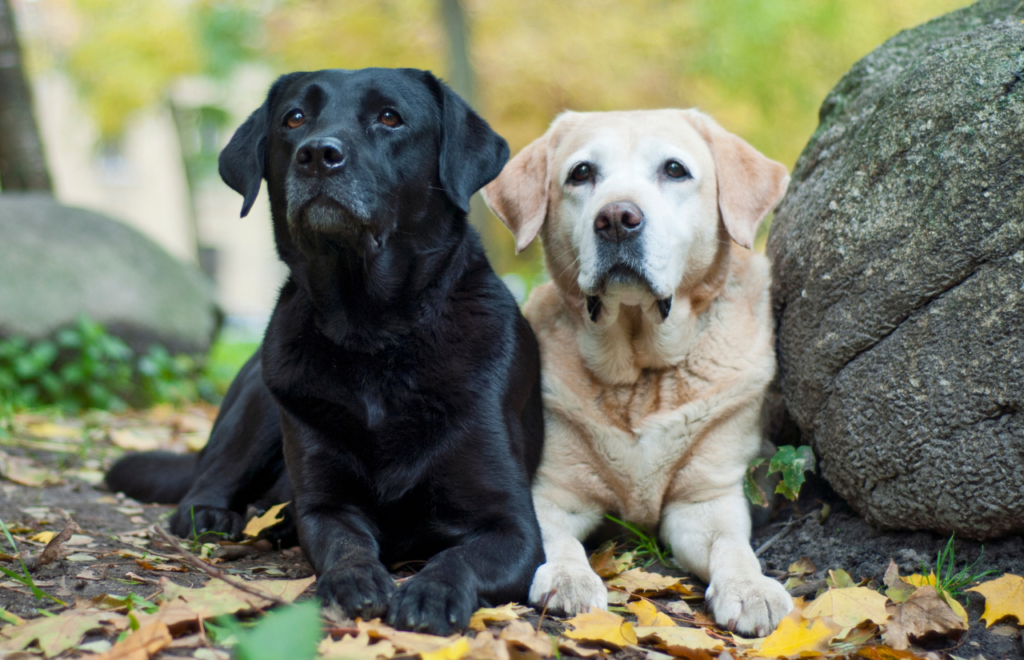
2. German Shepherd
The German Shepherd, often referred to as the GSD (German Shepherd Dog), is a symbol of reliability, strength, and intelligence. Originally bred in the late 1800s in Germany, this breed was initially intended for herding and guarding sheep. With their unmatched loyalty and sharp intellect, they quickly garnered attention beyond the pastures.
In modern-day Germany, and indeed worldwide, the German Shepherd has made a mark as a preferred choice for various roles. Their versatility is evident from their diverse jobs, ranging from police and military service to search and rescue missions. They’re celebrated for their keen sense of smell, alertness, and protective nature, making them exceptional guard dogs. Moreover, they’ve been stars of the silver screen, further cementing their place in people’s hearts.
With their distinct appearance of erect ears and a thick double coat, which can be in colors ranging from sable to black and tan, GSDs exude an air of elegance and authority. Socializing them from a young age ensures they’re well-adjusted and gentle family companions. Regular exercise and mental stimulation are crucial for this active breed, ensuring they remain content and well-behaved. Their unwavering loyalty and deep bond with their families make German Shepherds more than just pets; they become steadfast protectors and lifelong companions.
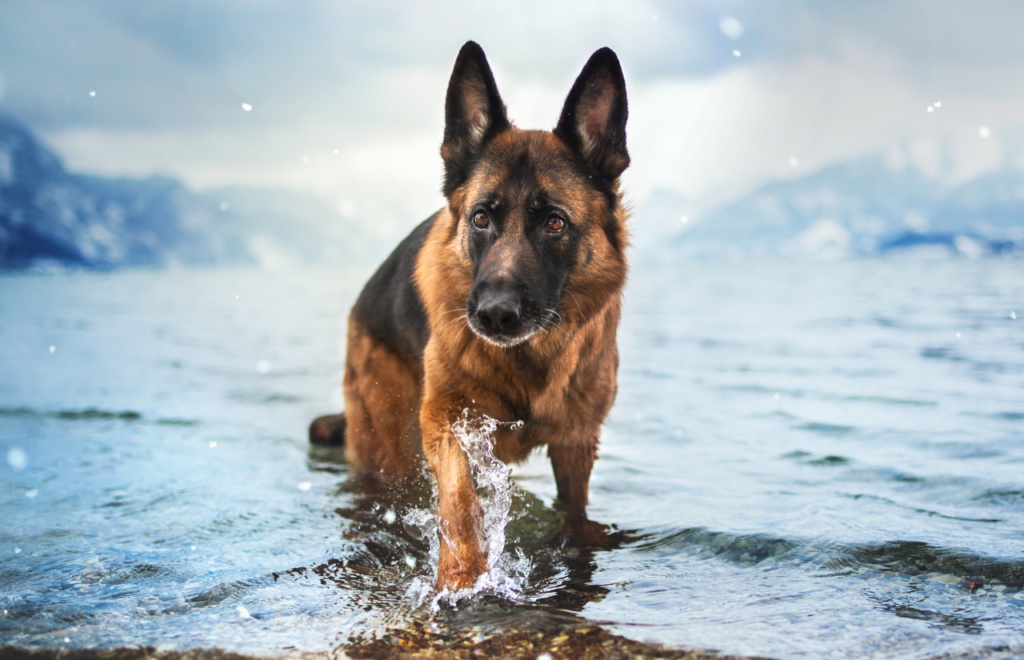
3. Golden Retriever
The Golden Retriever, with its shimmering golden locks and heart of gold, is universally adored and stands out as one of the friendliest breeds you’ll ever encounter. Originating from Scotland in the mid-19th century, the breed was developed by crossing the now-extinct Yellow Retriever with the Tweed Water Spaniel and was later crossed with Bloodhounds, Irish Setters, and more Tweed Water Spaniels. The goal was to create a breed that was excellent at retrieving games from both water and land because hunting was very popular among the Scottish elite at the time.
In Germany, Golden Retrievers are cherished for their gentle temperament, making them fantastic companions for families, especially those with children. Their playful nature, combined with an innate patience and kindness, makes them ideal playmates and loyal buddies. The breed’s intelligence also makes them standout performers in obedience and agility competitions. Furthermore, their empathetic nature has led to their widespread use as therapy and assistance dogs, aiding those in need with dedication and unconditional love.
Their luxuriant golden coat, which can range from light to dark gold, requires regular grooming to keep it in its best condition. It’s worth noting that this breed thrives on human interaction. A game of fetch, a long walk, or simply a cuddle session on the couch – Golden Retrievers cherish every moment with their families. Their unwavering affection, coupled with their joyful demeanor, ensures that they light up any household they become a part of.
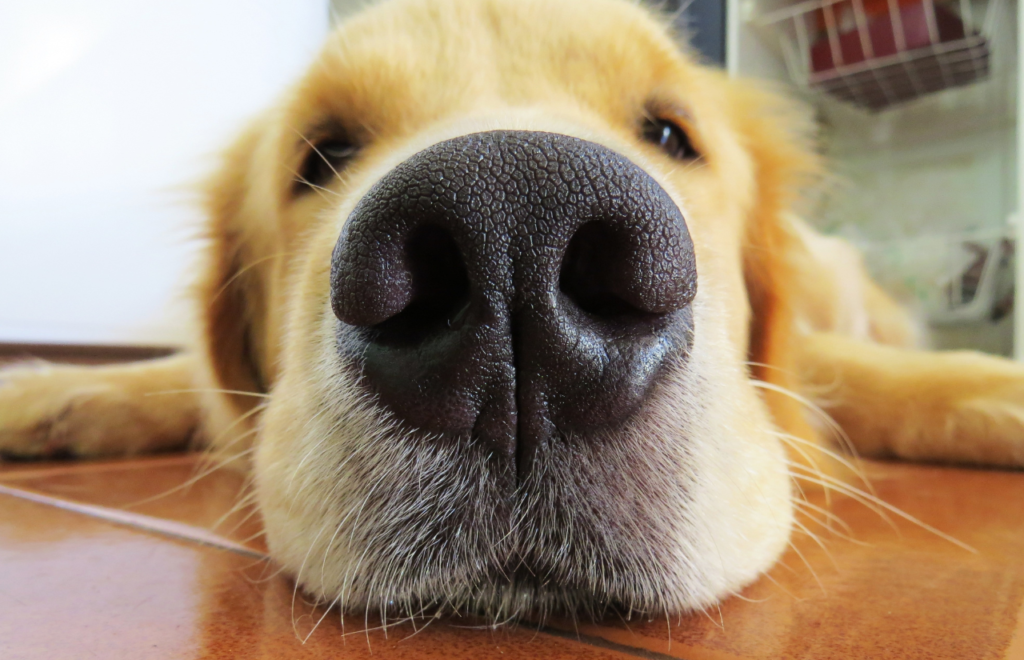
4. French Bulldog
The French Bulldog, often fondly referred to as the “Frenchie,” is a compact powerhouse of personality and charm. Despite its name suggesting a French origin, the breed’s early development traces back to England, where small bulldog types were popular among lace workers. During the Industrial Revolution, many artisans migrated to France in search of better opportunities, taking their little bulldogs with them. These dogs quickly became popular in France, leading to the development of the breed we recognize today as the French Bulldog.
In Germany, French Bulldogs have steadily climbed the popularity charts due to their adaptable nature and charismatic presence. They fit seamlessly into various living situations, be it a countryside dwelling or a city apartment. Their bat-like ears, short snouts, and muscular, compact bodies give them a distinctive and endearing appearance that’s hard to resist.
But it’s not just their looks that captivate; it’s their character. Frenchies are known for their playful antics, stubborn streaks, and deep affection for their humans. They are remarkably expressive, often communicating with a series of snorts, yawns, and iconic “Frenchie talk.” While they’re not big barkers, they’re attentive and will alert their family to any unfamiliar sounds or visitors.
Care for a Frenchie includes being mindful of their short snout, which can make them prone to breathing difficulties in extreme temperatures. Thus, they prefer indoor living with occasional play sessions outside. Regular vet visits and a balanced diet are also paramount to ensure they lead a healthy, spirited life. With their larger-than-life personalities packed into a small frame, French Bulldogs make every moment memorable for their families.
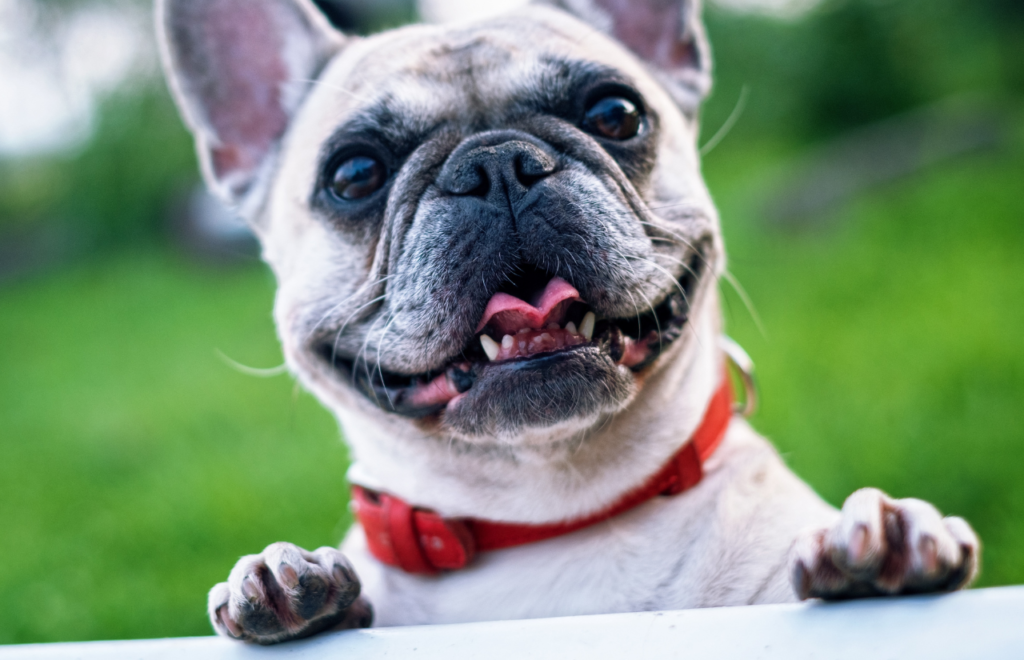
5. Dachshund
The Dachshund, affectionately dubbed the “sausage dog” or “wiener dog” due to its elongated body, is a breed with deep roots in German history. The very name “Dachshund” translates to “badger dog” in German, hinting at its original purpose: to hunt badgers and other burrowing animals. Their long body and short legs were specifically designed to allow them to dig into badger dens, while their brave and tenacious temperament made them fearless hunters.
In contemporary Germany, the Dachshund has transitioned from a diligent hunter to a beloved household pet, cherished for its lively character and distinctive appearance. Their curious eyes, paired with a nose that seems always eager to explore, reflect a world filled with wonder and excitement. Dachshunds come in three coat types: smooth, long-haired, and wire-haired, each with its unique charm and grooming needs.
But don’t be fooled by their small stature; Dachshunds are known for their bold and sometimes stubborn nature. They are fiercely loyal to their families and can be quite protective. This sense of loyalty, combined with their playful demeanor, makes them excellent companions for individuals and families alike. Their vocal nature, filled with barks and playful growls, often adds to the household’s liveliness.
Like all breeds, Dachshunds have specific care needs. Their long spine can make them prone to back issues, so it’s essential to ensure they don’t jump from heights and maintain a healthy weight. Regular vet check-ups, a balanced diet, and moderate exercise are crucial for their well-being. With the right care and love, a Dachshund becomes an irreplaceable part of the family, offering joy, laughter, and endless memories.
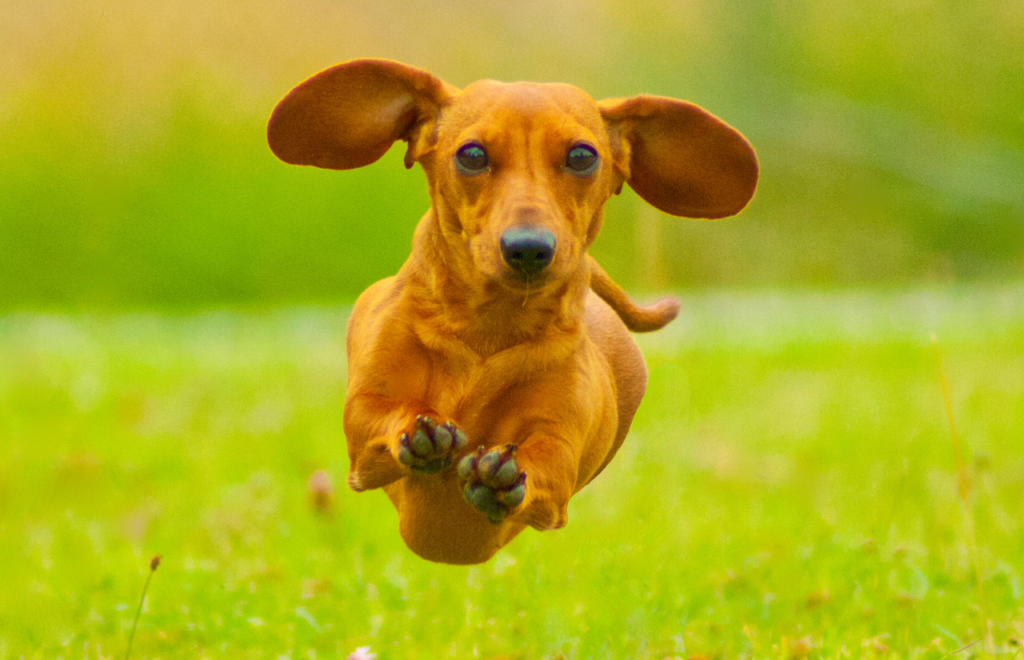
6. Poodle
The Poodle, synonymous with elegance and intelligence, is a breed that boasts not only beauty but also a brilliant mind. While often associated with the French due to their title as the “French Poodle,” this breed’s origins are rooted in Germany. The name “Poodle” is derived from the German word “Pudel,” which means “to splash,” referencing the breed’s initial role as a water retriever.
Today in Germany, Poodles are lauded not just for their retrieving skills but for their unparalleled adaptability to various roles, ranging from circus performers to truffle hunters. They come in three sizes: standard, miniature, and toy, each fitting perfectly into different lifestyles and family sizes. Their curly, hypoallergenic coat can be styled in numerous ways, from the intricate “continental” clip to the more practical “sporting” clip.
What truly sets Poodles apart is their intelligence. Ranked among the smartest dog breeds, they’re quick learners, always eager to please, and have a knack for picking up tricks and commands with ease. This cognitive prowess, combined with their natural athleticism, makes them standouts in dog sports such as agility and obedience competitions.
Caring for a Poodle demands mental stimulation just as much as physical exercise. Puzzle toys, training sessions, and interactive games are crucial to keep their sharp minds engaged. Regular grooming, given their curly coat, is also essential to prevent matting and to keep them looking their best. With their dignified demeanor, keen intellect, and unwavering loyalty, Poodles effortlessly carve a special place in the hearts of those fortunate enough to share their lives with one.
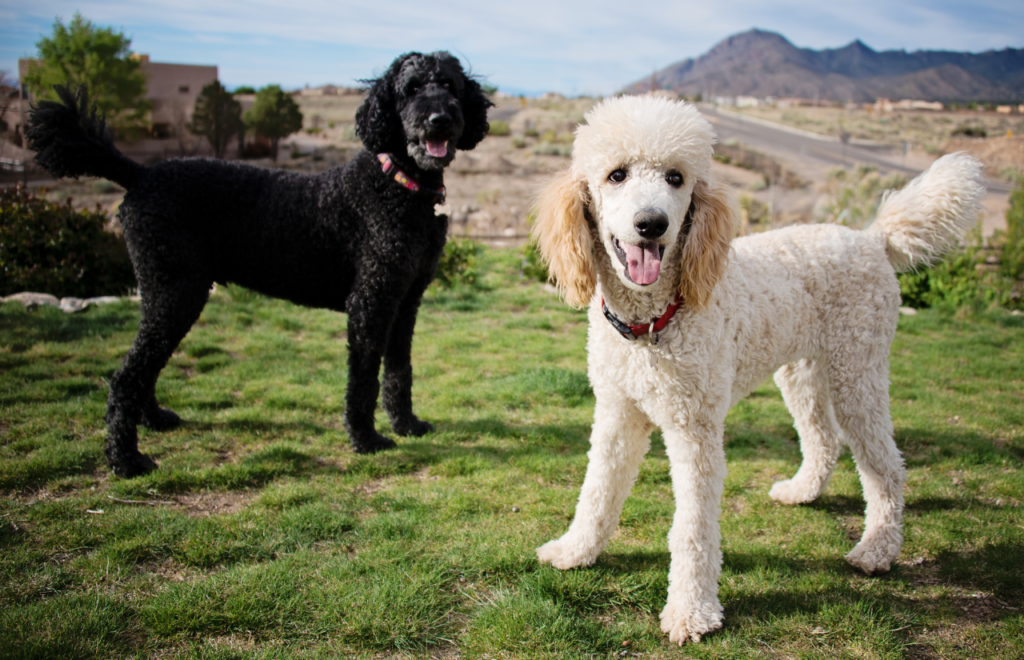
7. Beagle
The Beagle, with its soulful eyes, floppy ears, and merry demeanor, is a breed that exudes joy and warmth. Historically, the Beagle’s ancestors can be traced back to Roman times when small hound breeds were used for tracking small game. The modern Beagle, as we know it, was developed in England, with its primary purpose being to hunt hare in packs.
Germany, like many countries, has been captivated by the Beagle’s spirited and friendly nature. These compact hounds are celebrated for their remarkable sense of smell, second only to the Bloodhound. Their olfactory prowess often sees them employed in roles such as detection dogs at airports or even as therapy dogs, owing to their gentle disposition.
Beagles are social creatures that thrive in the company of both humans and other dogs. Their curious nature often leads them on little adventures, driven by their noses. This trait, while endearing, also means they can sometimes wander off if they catch an interesting scent. As such, a securely fenced yard or on-leash walks are recommended. Their trademark bay, a melodious howl, can be both heartwarming and, occasionally, a tad loud, especially if they’re excited or on the trail of an intriguing smell.
When it comes to care, Beagles are relatively low maintenance. Regular exercise, a balanced diet, and routine vet check-ups will keep them happy and healthy. Their short coat requires minimal grooming but benefits from regular brushing. Above all, Beagles are renowned for their loyalty and affection. With their zest for life and loving nature, they make any household brighter and more vibrant.
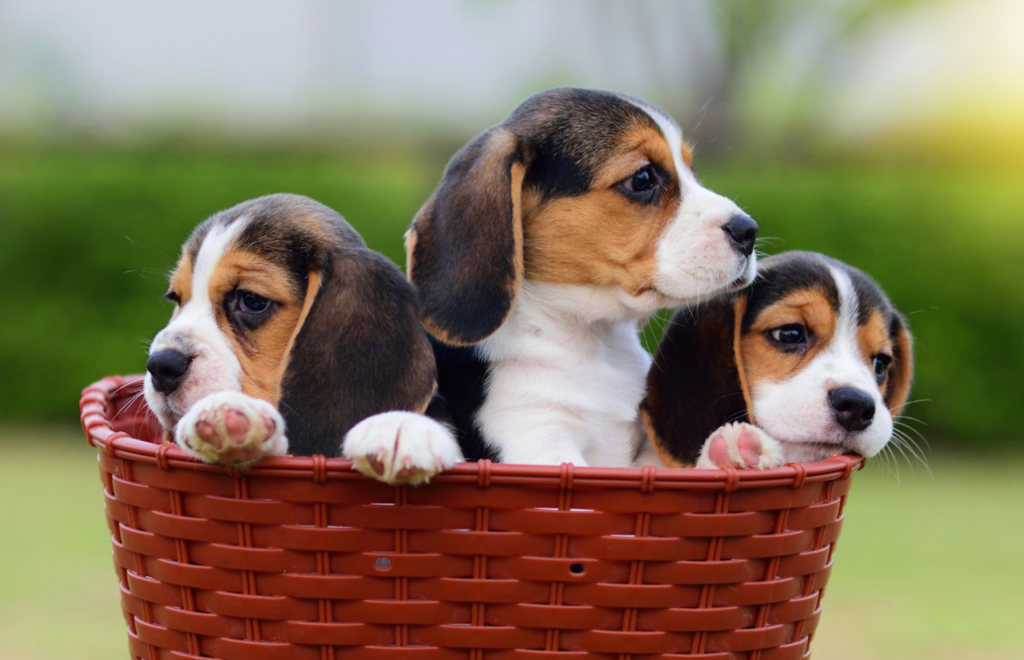
8. Chihuahua
When you think of small dogs with big personalities, the Chihuahua inevitably springs to mind. Hailing from Mexico and named after the Mexican state of Chihuahua, this pint-sized pooch packs a punch in terms of charisma and charm. Despite its diminutive size, the Chihuahua doesn’t see itself as a small dog and often carries itself with the confidence and swagger of a much larger breed.
In Germany, Chihuahuas have found their niche among those seeking a compact companion that’s both loyal and lively. They’re perfect for city dwellers and those with limited space, fitting comfortably into apartment living. Their expressive eyes, combined with their alert ears (either erect or floppy, depending on the individual), give them a distinctive and captivating appearance that’s hard to resist.
While Chihuahuas might be small, they’re known for their vivacious personalities. They’re spirited, intelligent, and often form strong bonds with their families, displaying a level of loyalty that’s genuinely heartwarming. This bond also means they can be a tad protective, occasionally showing a feisty side when they sense their loved ones are threatened.
Caring for a Chihuahua entails ensuring they’re protected from extreme temperatures. Their small size makes them susceptible to the cold, so cozy sweaters or jackets are often necessary in chillier climates. Their dietary and exercise needs are moderate, but like all dogs, they benefit from regular check-ups and a balanced diet. Socialization from a young age is crucial to ensure they’re well-adjusted and comfortable in various environments. With their cheeky antics, endless love, and zest for life, Chihuahuas are a testament to the saying, “good things come in small packages.”
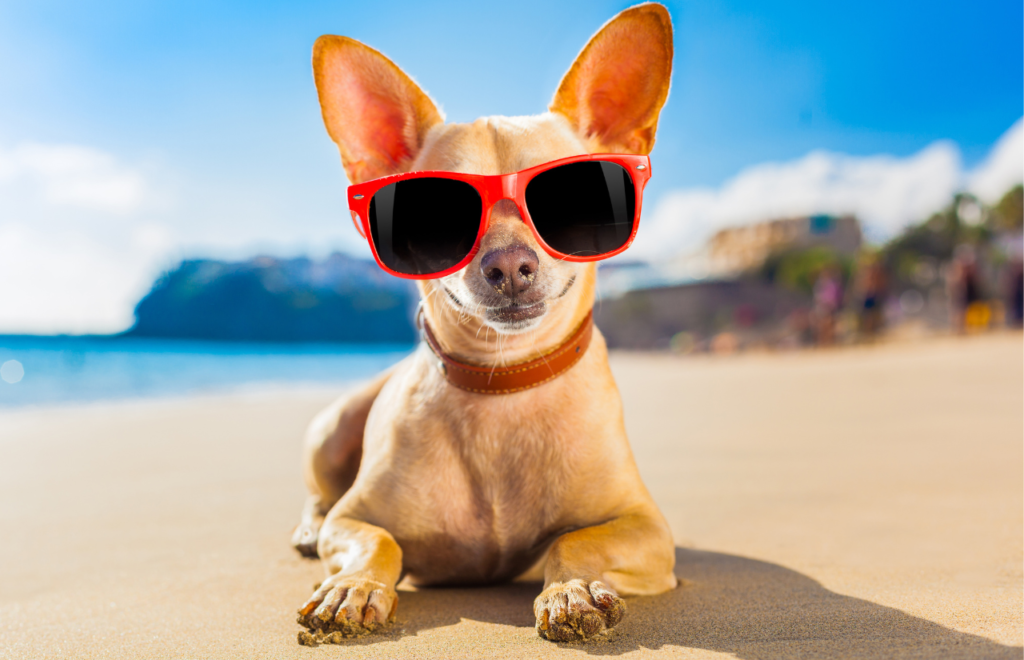
9. Boxer
The Boxer, characterized by its muscular build, short coat, and a face full of expression, is a breed that embodies both strength and tenderness. Originating from Germany, the Boxer’s ancestors were used for a variety of tasks, from hunting big game to herding livestock. Their modern counterpart is a blend of the now extinct Bullenbeisser and the Old English Bulldog, resulting in a breed that’s versatile, energetic, and deeply loyal.
In its homeland, Germany, Boxers have enjoyed consistent popularity for decades. They’re celebrated not just for their physical prowess, but for their boundless affection and playful nature. A Boxer’s enthusiastic greetings, often complete with the trademark “Boxer wiggle,” are legendary among dog enthusiasts. Their jovial, sometimes clownish antics, paired with an innate sense of loyalty, make them cherished family members.
Boxers, with their natural athleticism, thrive on physical activity. Whether it’s a game of fetch, a long hike, or a simple stroll through the neighborhood, they relish every opportunity to stretch their legs and explore. Their intelligence and eagerness to please also make them standout performers in various dog sports, from obedience to agility.
While their short coat is relatively low-maintenance, regular check-ups and a balanced diet are essential to keep them in top shape. Socialization and training from a young age are crucial, ensuring that they grow up to be well-mannered and confident adults. Boxers, with their endearing blend of strength and sweetness, have a unique ability to form profound bonds with their families, offering protection, love, and countless joyous moments.
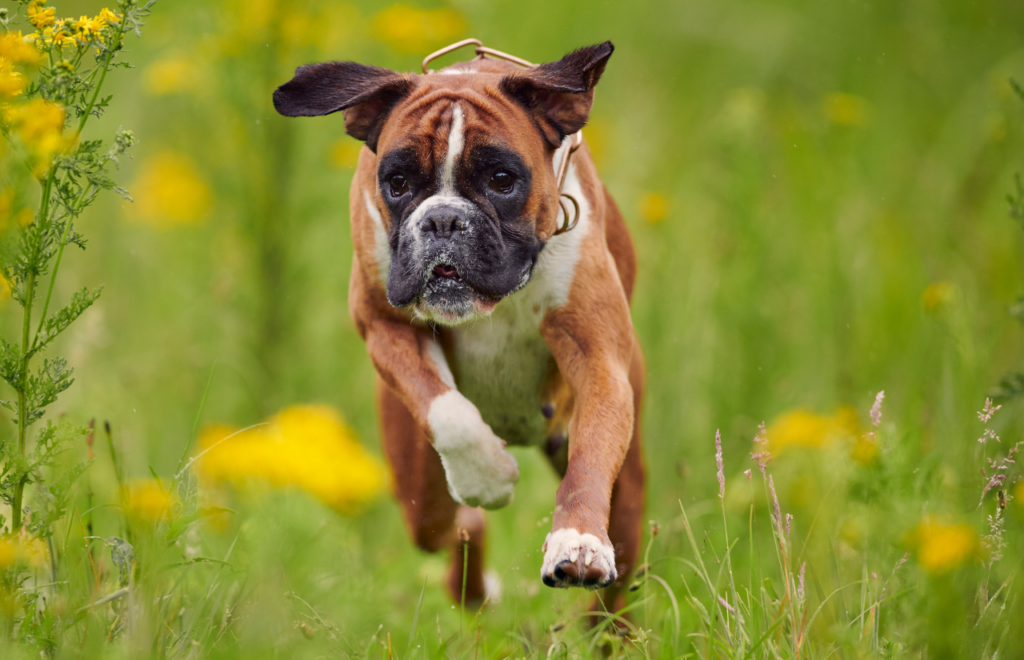
10. Border Collie
The Border Collie, often touted as the “workaholic” of the dog world, is a breed renowned for its intelligence, agility, and boundless energy. Originating from the borderlands of Scotland and England, the breed’s primary role was herding livestock, particularly sheep. Their keen instincts, laser-focused stare, and agility allowed them to excel in this role, managing flocks with precision and finesse.
Although their roots are British, Border Collies have found a special place in the hearts of Germans who appreciate their unparalleled work ethic and their dynamic nature. In a landscape rich in dog sports and outdoor activities, the Border Collie’s capabilities shine, making them favored participants in agility courses, obedience competitions, and even disc dog events.
What truly sets the Border Collie apart is its mental acuity. Often ranked as the most intelligent dog breed, they possess a remarkable ability to learn new commands, often with only a few repetitions. This sharp intellect, however, means they require ample mental stimulation. Puzzle toys, training sessions, and interactive play are essential to keep their agile minds engaged and prevent boredom.
When it comes to care, Border Collies have a moderate-length double coat that benefits from regular brushing to prevent tangling and matting. They also have a substantial need for exercise, thriving on long walks, hikes, and active play sessions. Proper training and early socialization are pivotal, ensuring they mature into well-adjusted adults. With their combination of brains and athleticism, Border Collies are not just skilled workers but also devoted companions, enriching the lives of those fortunate to call them family.
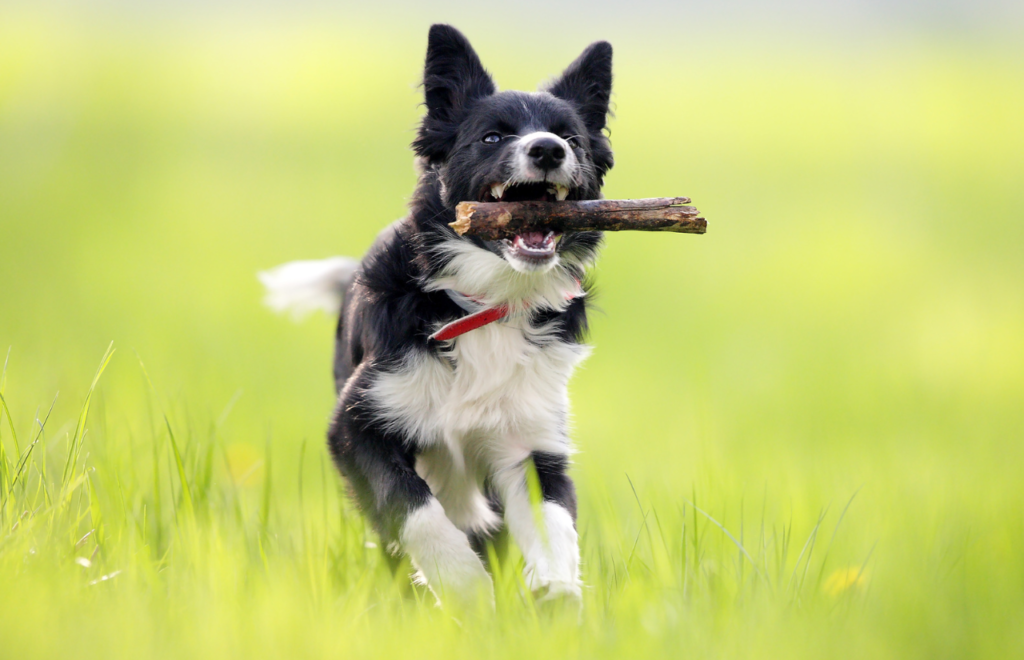
Selecting the Right Breed
While the allure of popular breeds is undeniable, it’s paramount to remember that selecting a dog goes beyond popularity charts and trends. Each dog breed comes with its unique set of traits, needs, and characteristics, making the process of choosing a breed both exciting and challenging. Here are some key considerations to keep in mind:
1. Lifestyle Compatibility
It’s crucial to choose a breed that aligns with your lifestyle. For instance, if you live in a bustling urban environment, a smaller, adaptable breed like the Chihuahua or French Bulldog might be a suitable choice. Conversely, if you have vast open spaces or lead an active lifestyle, breeds like the Border Collie or Labrador Retriever could be ideal companions.
2. Activity Level
Every dog breed has its energy level. While breeds like the Boxer or Golden Retriever are bustling with energy and require ample exercise, others, like the Dachshund, might be content with moderate activity. Ensure the breed’s energy level matches your capability to provide physical and mental stimulation.
3. Grooming Needs
Grooming isn’t just about maintaining a dog’s aesthetic appeal; it’s also vital for their health and well-being. Some breeds, like the Poodle, have specific grooming requirements, while others, such as the Beagle, are relatively low-maintenance. Always consider the time and effort you’re willing to invest in grooming when choosing a breed.
4. Temperament
While every individual dog has its personality, certain temperament traits are inherent to specific breeds. For instance, the German Shepherd is known for its protective nature, while the Golden Retriever is renowned for its friendly disposition. It’s essential to choose a breed whose temperament aligns with your household’s dynamics and preferences.
5. Health Considerations
It’s a hard truth that some breeds are more predisposed to specific health issues than others. Conducting thorough research about potential health concerns and understanding the lifelong commitment of care can guide you in making an informed choice.
In conclusion, while the journey of selecting the right breed might seem daunting, it’s also immensely rewarding. By aligning your choice with your lifestyle, preferences, and the needs of the breed, you pave the way for a fulfilling and harmonious companionship. Remember, it’s about finding the perfect fit for both you and your future furry friend.

